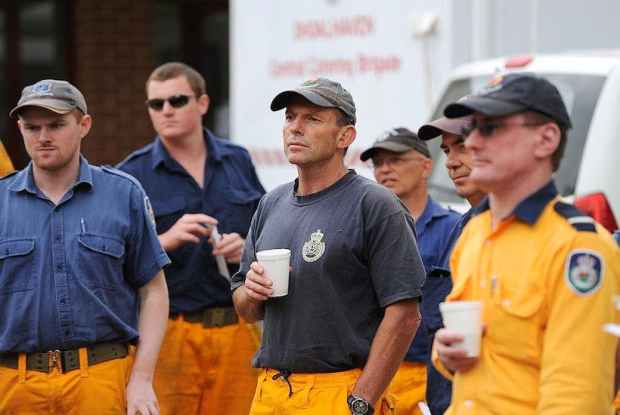Surely the federal government would have learned by now to avoid a knee jerk reaction the ABC hopes for whenever they broadcast one of their highly selective one-sided programmes.
Malcolm Turnbull, a former minister for communications, would be well aware that a collective exists within the ABC whose mission is not so much to report the news, but to make the news.
Nevertheless, the moment Turnbull saw the ABC’s 25 July 2016 programme on juvenile detention in the Northern Territory, ”Australia’s Shame”, he decided on that most simplistic solution to those situations where a government hasn’t the foggiest idea what to do, a Royal Commission.
This was despite the fact that the events that were the subject of the programme had been well and truly investigated, reported on and acted on. This was something which the Royal Commission’s Terms of Reference had to acknowledge. Under these, the Royal Commission is not required to inquire where it is satisfied that a ”particular matter” has been ”sufficiently and appropriately dealt with” by another inquiry or court.
The government also managed to make a complete mess of the appointment of the Royal Commissioners. Their first choice, Brian Martin, resigned because he wasn’t prepared to put up with claims from those pretending there was some conflict of interest concerning his daughter’s previous employment. Then the government made an extraordinary appointment that can never be seriously defended. Because he immediately called for the dismissal of the NT government as soon as he saw the ABC program, Mick Gooda could not have more disqualified himself from ever acting as a Royal Commissioner on this question. It is difficult to imagine an appointment more tainted by ”apprehended bias”.
As the 2015 Vita report observed, there is no need to reinvent the wheel. The fundamental and sad fact is that many if not most of the detained youths come from dysfunctional homes.
The danger is that the Royal Commission will be pushed into recommending some so-called solution based on some fashionable theory. This will flow from the spurious argument that because there are so many indigenous persons in jail, they should not be sentenced in the same way as other Australians are even when they commit the same crimes. This will mean that rather than being detained, young indigenous offenders who have committed some very serious crime should always be put into some form of community rehabilitation, no matter what their record is.
The people who will suffer from serious offenders being released into the community are mainly the indigenous, including the elderly, women and the very young.
As the indigenous leader Professor Marcia Langton warned, proposals to reduce the overall level of indigenous imprisonment of serious offenders lead to the conclusion that the lives of indigenous women, children, and other victims of crime ”simply do not matter”.
The reason why so many of the indigenous are in gaol is that so many children in the remote parts of Australia live in family relationships which can only be described as seriously dysfunctional.
This is the direct result of decisions taken by the politicians over many years based on utopian concepts from the elites about tribal life in remote areas. A reversion to truly traditional life is unrealistic and certainly not wanted by indigenous people. Life in most remote areas is often only feasible through vast spending on welfare; but as with other Australians, a life of welfare dependency leads inevitably to dysfunctional families where children become the victims of violence, abuse and addiction.
Correcting this is the duty of the Federal government whose predecessors in office created the problem. But there is no evidence the Turnbull government intends to address the serious problem of widespread welfare dependency, except at the margins.
In the meantime, we have the problem of how best to deal with the young offenders who are the direct product of this system of welfare dependency.
We should concentrate on trying to save young offenders from ruining their lives and becoming hardened criminals. The solution is not in some version of so-called community rehabilitation.
Warwick Stacey, a specialist consultant to an international firm advising clients on response to kidnap for ransom and extortion, served as an officer with the British Army’s Parachute Regiment and 22 SAS and as a major in our army reserve. In the British Army he spent a year commanding and training ‘boy soldiers’ (youths enlisting under the then adult age of 17.5 years) and believes a similar programme offers a potential solution to this very evident problem.
The Liberal Party, at least at the time when it was founded by Menzies, would have once rushed to invite him to stand as a candidate. But after seeing how the hard left lobbyist powerbrokers put retired Major General Jim Molan into an unwinnable position on the recent New South Wales Senate ticket, there would be no chance of that now.
We ought to know by now that in so many areas where traditional values and time-tested approaches have been abandoned, whether in education or in the family, the result has been a disaster.
What Stacey proposes is to offer to indigenous (and non-indigenous) juvenile offenders the experience of a ”Timbertop” style of school combined with military discipline, in place of time in a city-based detention centre. For a minimal period of one year and for as long as whatever detention period had been determined, participants at this Timbertop style school would be reintegrated into society when this is assessed to be feasible and successful.
His idea is to engage the military to instil discipline and inculcate knowledge, capability, responsibility and true self-esteem. He envisages this would be similar to the methods used with boy soldiers and with new young recruits into the army.
What these troubled youths also desperately need are basic educational foundations — reading, mathematics, basic sciences – they just do not have, and clearly have no hope of getting. Without them they cannot hope to engage as full citizens in modern Australian society.
They would have to be educated in the only proven way that this can be achieved for such youths – in a disciplined environment.
This would involve ‘cadet corps’ or ‘boy soldier’ level military training so where they would be required to dress in clean and ironed uniforms with polished boots, and learn how to drill and to accept discipline. They would also learn such military skills as basic tactics, map-reading, living in the field, survival etc.
The program would be a mix of cadet type training, education and an introduction to trade training, as well as sport and adventure training. The point would be, Stacey says, to “make the experience enjoyable, rewarding and fulfilling.”
The program would aim to develop an interest in a lifetime career, for example, in a trade, or in the armed forces, and in as well as service in the reserves. Through physical training and sports, the aim would also be to develop a lifelong preference for healthy living.
Each successful graduate of the program would be self-disciplined, with an understanding of how to live living a healthy and hygienic life, and appreciating the advantages of punctuality, teamwork and true self-esteem, that is self-esteem which comes from discipline and service.
The schools would be located in remote but ‘geographically interesting’ and ‘self-sustaining’ camps. They would be staffed by regular and / or reserve army officers and NCOs and military educators (teachers and trade instructors) and physical training instructors.
Stacey proposes a brief but comprehensive training course for staff. This would involve “no motherhood, no new-age, post-modern garbage that currently prevails!”
Each intake would be divided into small groups according to age and physical ability. This would be to minimise domination by individuals in groups, as well as to develop a sense of teamwork in each group, and competition between groups, rather than between individuals.
There would have to be strict controls to prevent physical or sexual abuse by and between detainees.
The sanctions for misbehaviour, Stacey says, would be the same as for new army recruits, with the ultimate section sanction being ”a return to the four walls and restricted activity of a city-based detention centre.”
As he says, all government initiatives, generally consisting of reckless dispensing of supposedly limitless funding, have failed. ”Rent-seeking interest groups continue to mouth the usual platitudes and offer the quack medicine that has changed nothing over decades.”
His method is tried and tested. Many professional soldiers attest to the life-changing experience of military service that stopped them from spiralling into self-destruction and put them back on track to develop self-respect and become useful, responsible and independent citizens.
It deserves to be tried in the Territory. It could then be expanded to the rest of Australia. We cannot abandon even more young people to a wasted life of illiteracy, welfare, crime, alcoholism and drug addiction.
David Flint is presenter of ‘Safe Worlds – Conversations with Conservatives’ on Safe Worlds TV and YouTube
Got something to add? Join the discussion and comment below.
Get 10 issues for just $10
Subscribe to The Spectator Australia today for the next 10 magazine issues, plus full online access, for just $10.

























Comments
Don't miss out
Join the conversation with other Spectator Australia readers. Subscribe to leave a comment.
SUBSCRIBEAlready a subscriber? Log in